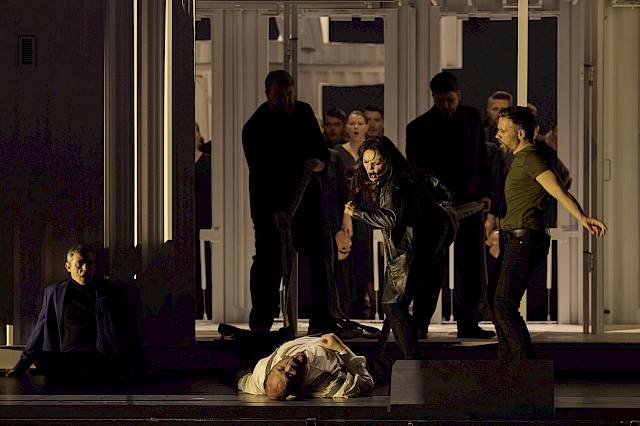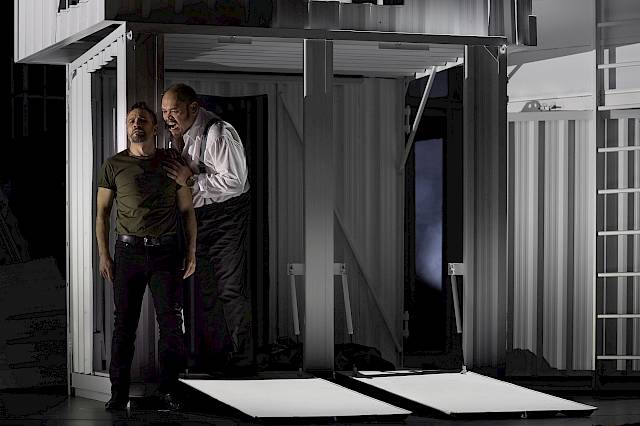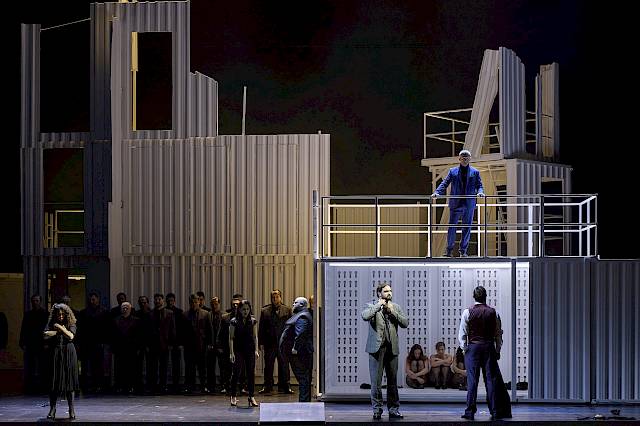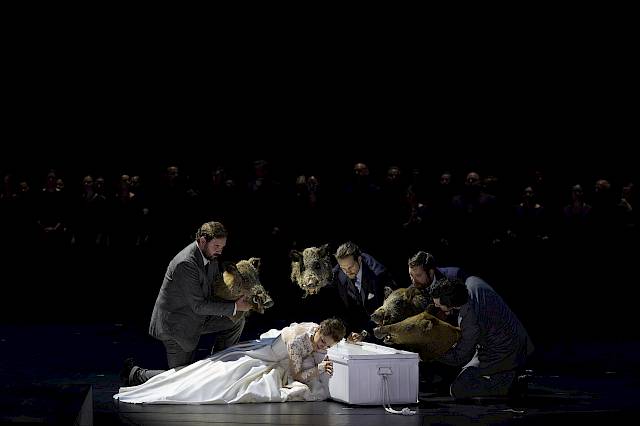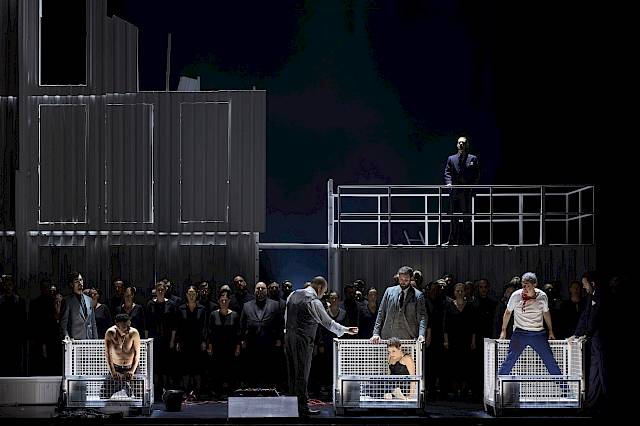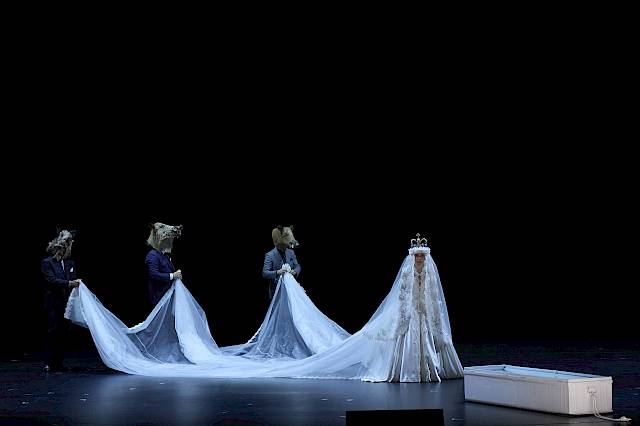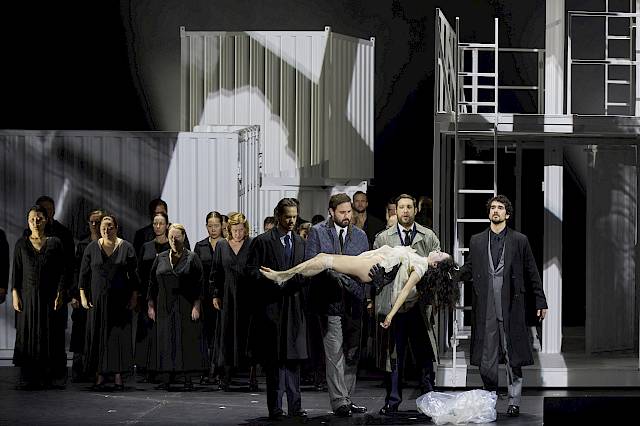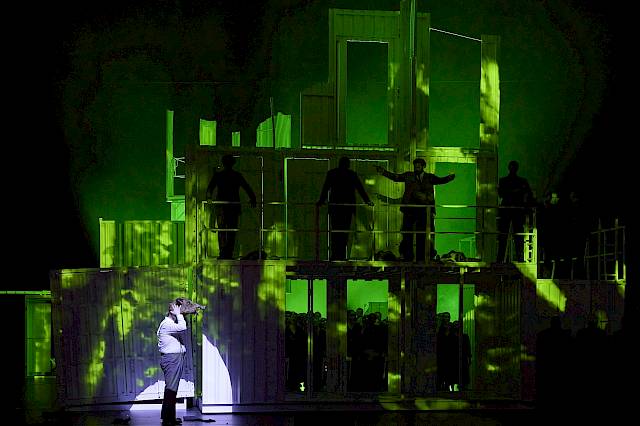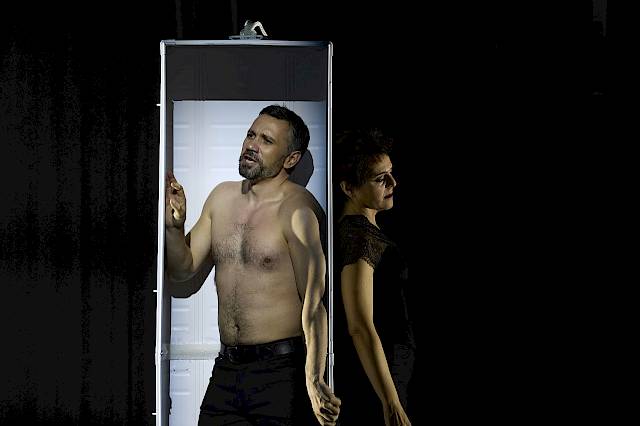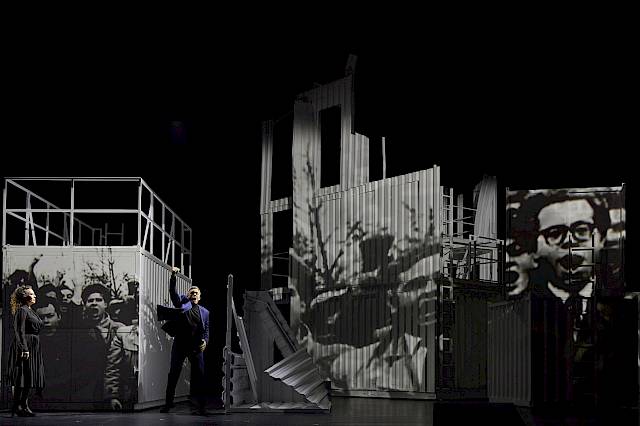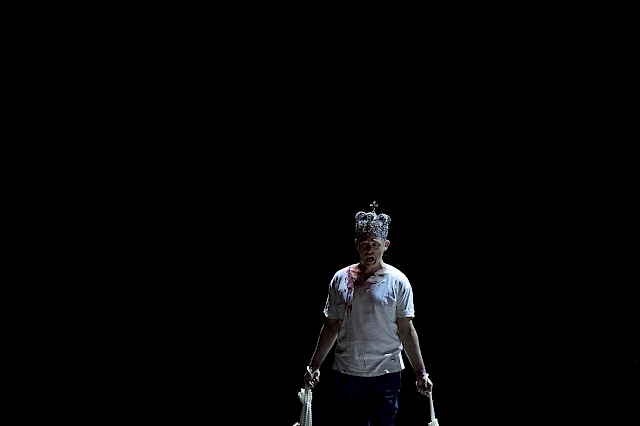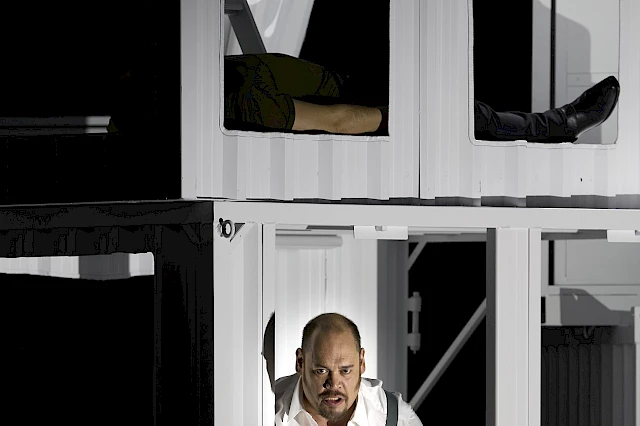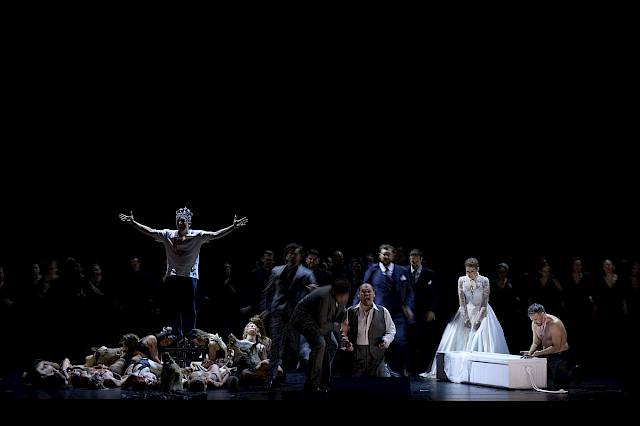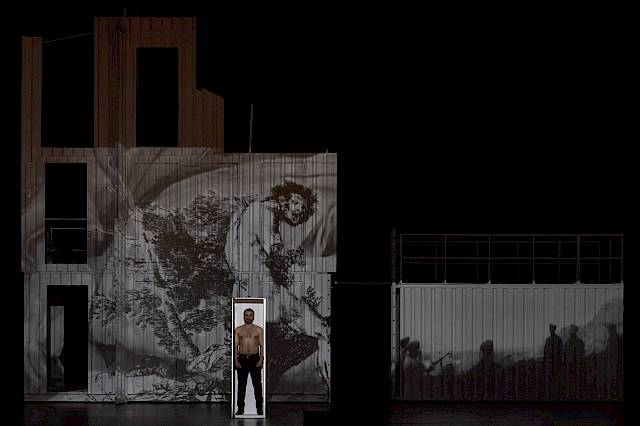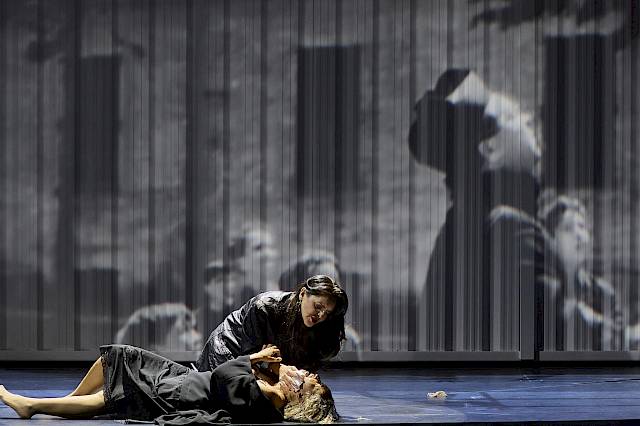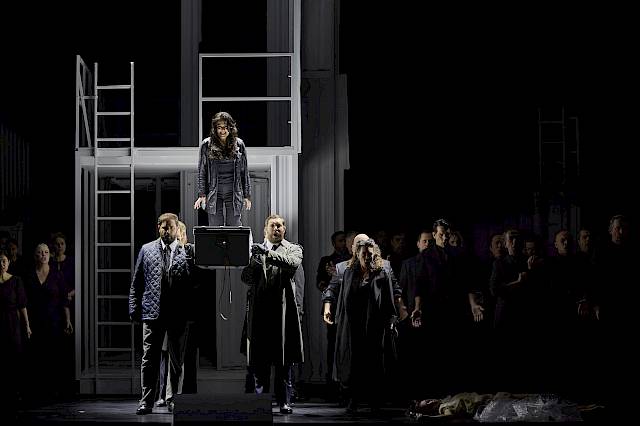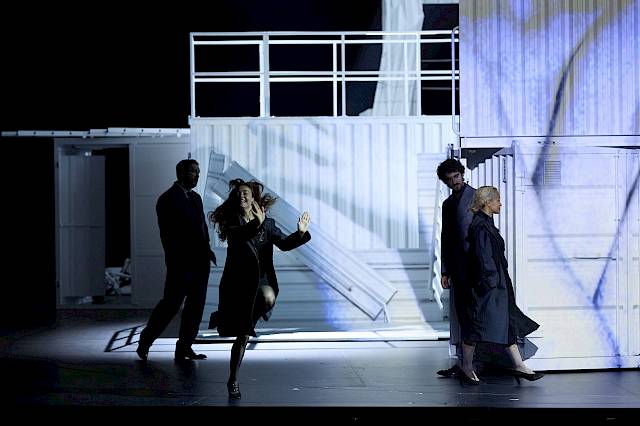I vespri siciliani
Dramma in five acts by Giuseppe Verdi (1813-1901)
Libretto by Eugène Scribe and Charles Duveyrier,
Italian translation by Arnaldo Fusinato
In Italian with German and English surtitles. Duration approx. 3 H. 05 Min. incl. intermission after approx. 1 H. 40 Min. Introduction 45 min before the performance.
Partner Opernhaus Zürich 
Good to know
In this production, there are depictions of sexualised violence against women.
Nachgefragt – Beate Breidenbach about «I vespri siciliani»
What is «I vespri siciliani» about, dear Beate Breidenbach, what can you say about the female characters in the opera and what makes the work so topical? The dramaturge of our latest Verdi opera offers some insight.
I vespri siciliani
Synopsis
I vespri siciliani
Act One
Sicily is occupied. The country is suffering under foreign rule; the women in particular are targets of the occupiers’ violence.
Elena, a Sicilian, mourns the death of her brother, who was executed by the occupying forces. She is forced to sing in public. Her song contains a thinly-veiled call to revolt, at long last, against the occupiers. But the appearance of Monforte, the occupiers’ leader, puts a stop to any resistance.
Arrigo, who loves Elena, has returned from captivity traumatised. Nevertheless, he declares that he still wants to fight for freedom. Monforte is impressed by Arrigo's courage, and wants to win him over to his own side. At the same time, he warns Arrigo against Elena - to no avail.
Act Two
Procida has returned to Palermo, where he hopes to lead a revolt against the occupying forces alongside Elena and Arrigo. Arrigo confesses his love to Elena. She agrees to marry him if he avenges her brother’s death.
Procida incites the occupiers to seize whichever Sicilian women they like by force. His aim is to stir up the Sicilians’ anger towards their oppressors. However, the Sicilians do not even put up any resistance when the occupiers abduct their women. Procida decides to plan an assassination attempt against Monforte.
Act Three
Monforte has a letter from a Sicilian woman who has recently died; she writes of a son she bore after being raped by Monforte. This son is Arrigo. Monforte now convinces himself that his agonising loneliness will be eased, and his life be happier, with his son by his side.
Monforte confronts Arrigo with the fact that he, Monforte, is his father. But Arrigo is overwhelmed with emotion, and reacts aggressively – he realises that this means the end of his relationship with Elena.
Monforte gives a grand ball. Elena and Procida also attend, with the aim of assassinating Monforte. When Arrigo learns of this, he warns Monforte. However, Monforte ignores all these warnings. When Elena tries to kill Monforte, Arrigo intervenes and prevents the assassination attempt.
Act Four
Arrigo visits Elena in prison and confesses to her that he is Monforte's son. She forgives him. Arrigo wishes to be executed together with Elena.
As the execution is about to take place, Monforte promises to pardon the conspirators if Arrigo acknowledges him as his father. In the very last moment before the execution, Arrigo calls out, "My father". Monforte halts the execution and announces Elena and Arrigo’s marriage, which is to take place that very evening.
Act Five
The wedding is about to begin. Procida explains to Elena that the wedding bells will also signal the start of a revolt against the occupying forces. To prevent a bloodbath, Elena renounces her decision to marry Arrigo. Monforte ignores Elena’s refusal, and pronounces the pair man and wife. The bells ring. The massacre begins.


